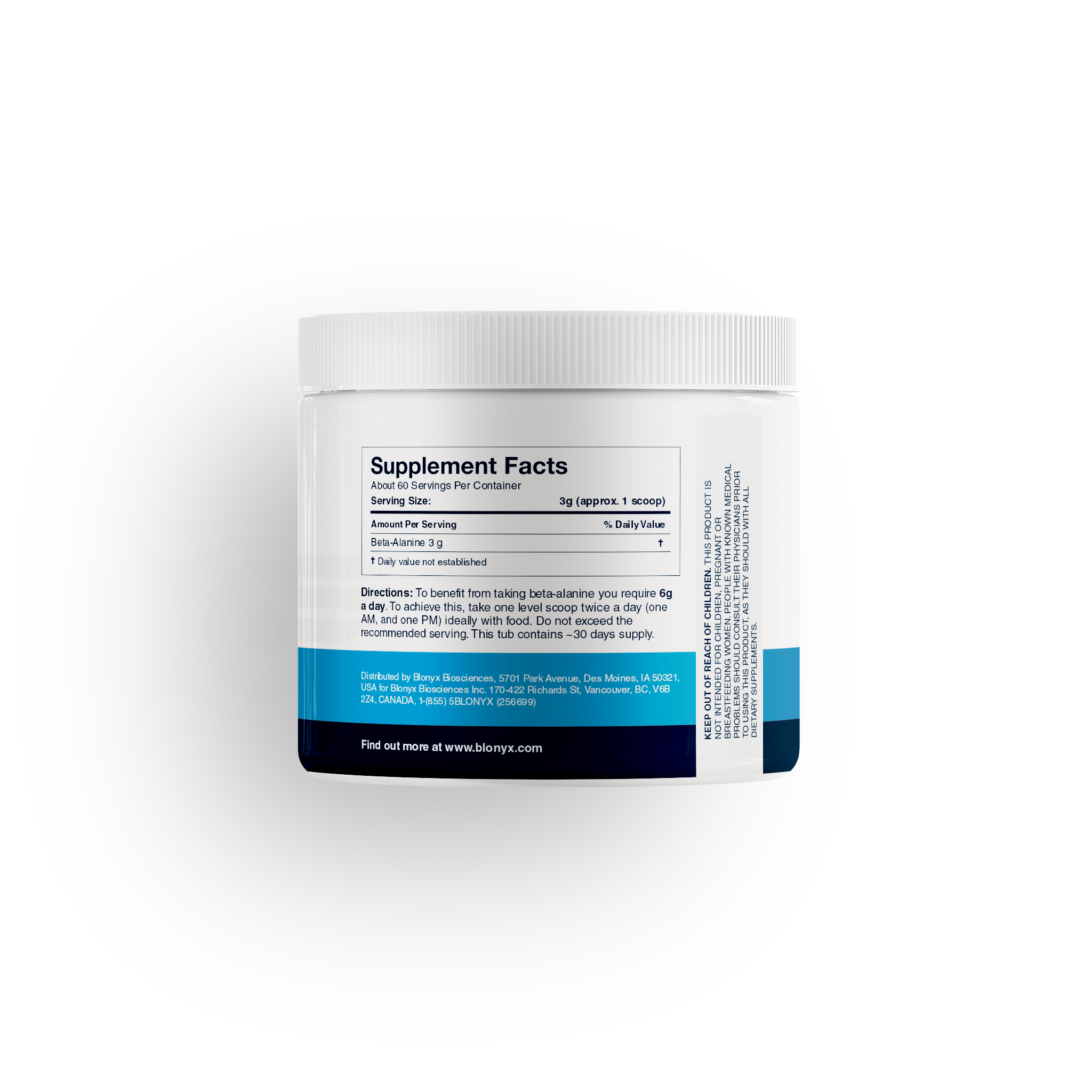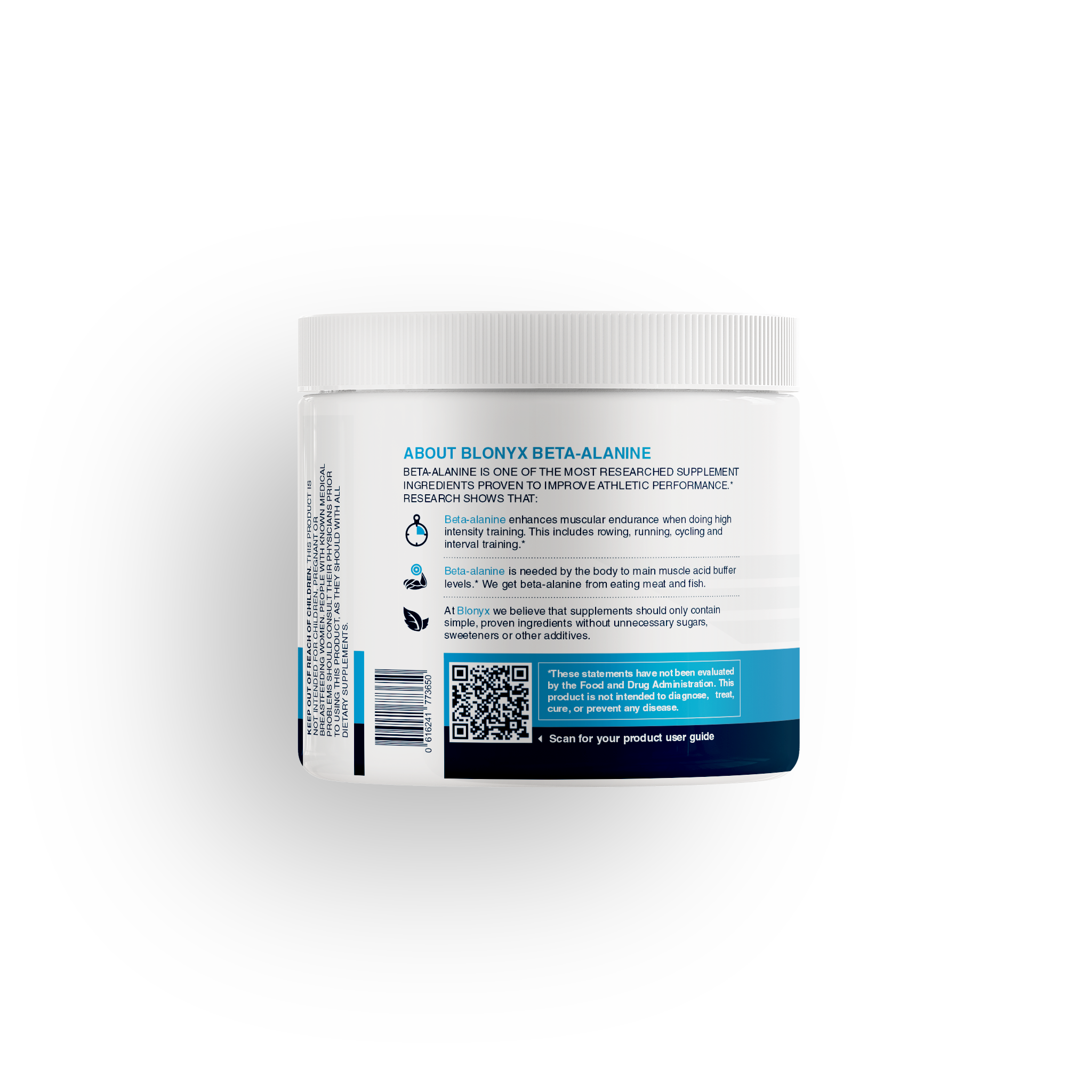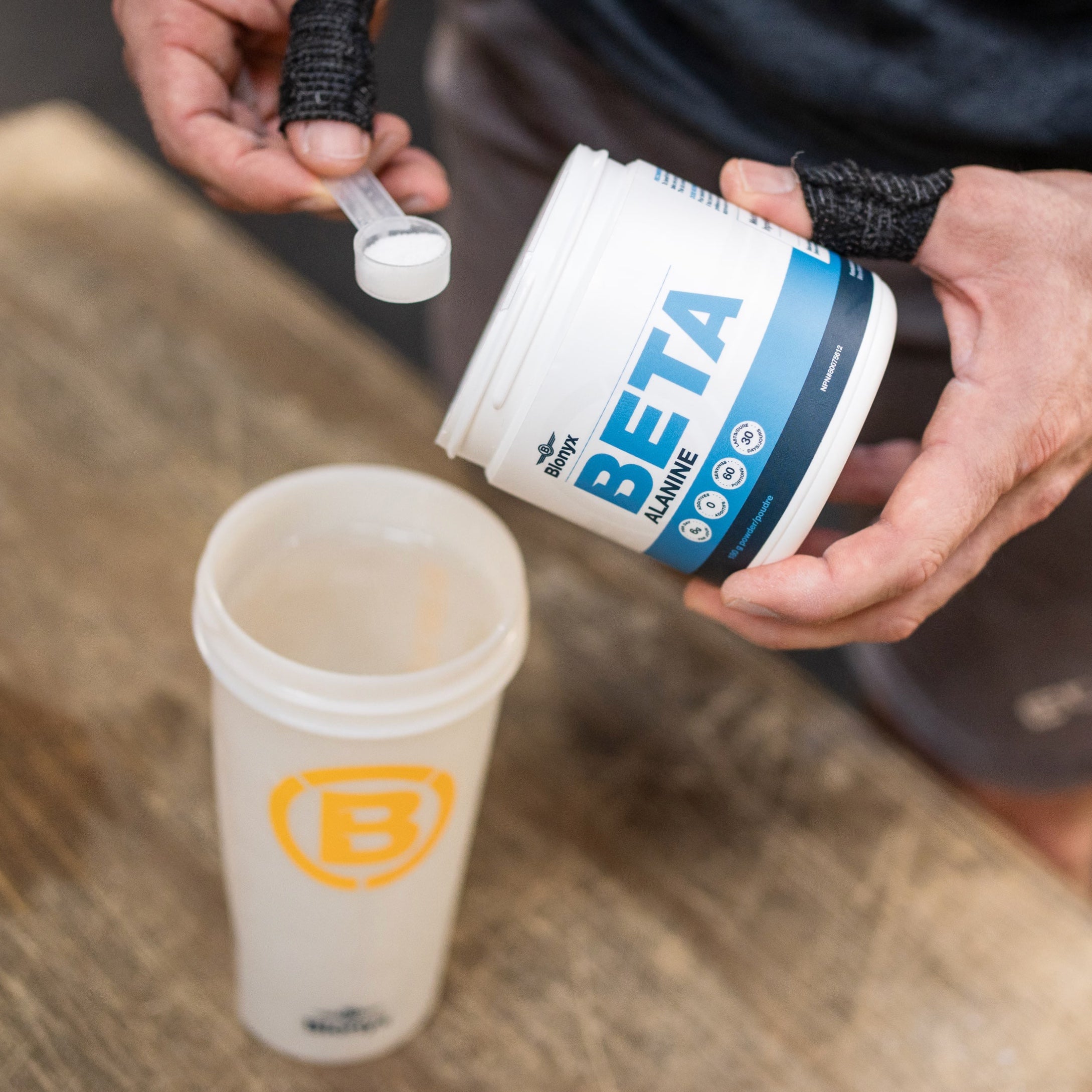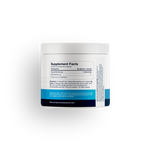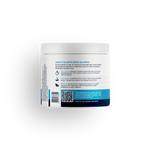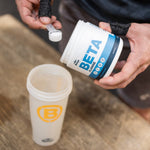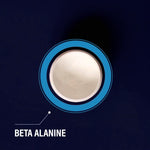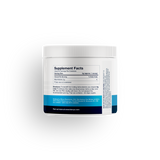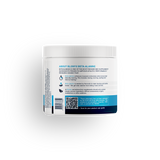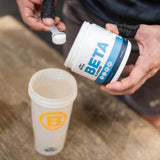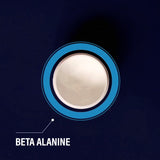Blonyx Beta Alanine
- Free shipping on orders over $75
- 100% money-back guarantee
Description
Beta Alanine is a pure, unflavoured supplement designed for athletes pushing through intense and repetitive efforts. It's a highly-researched nutrient in sport science, often integrated into training regimens to support an athlete's capacity for sustained output. Beta alanine is frequently used by athletes aiming to maintain intensity during demanding sets and longer training sessions. It helps support an athlete's ability to perform effectively through high-volume workouts like weightlifting, sprinting, and rowing. This can contribute to consistent training and progress over time.
View our Shipping & Returns Policy.
For strength athletes
Beta Alanine will help you lift more weight, do more reps and preserve your energy, so your training becomes more efficient and feels less difficult.
“Incorporating Beta Alanine into my daily supplementation helps me squeeze out those extra 3–5 reps. I can push myself further than I otherwise would be able to before I red-line. When I take Beta Alanine, it just feels like my tank is more full.”
– Jason Marchand, CrossFit Games quarterfinalist
For endurance athletes
Beta Alanine will improve your muscle endurance and increase your stamina on the bike or while running, so you can push harder over longer distances and improve your times.
"With Beta Alanine, I feel like Superwoman! My cardio was always really good, but my legs would get tired from the compounding distance. While taking Beta Alanine, I feel like my legs have more spring and I can recover faster."
– Samantha Jory, 2:36 marathoner
For functional fitness and team sport athletes
For functional fitness, hybrid, adventure, and team sport athletes, Beta Alanine will increase your stamina, reduce fatigue from high-energy bursts and help you adapt more easily, so you can maintain a consistently high level of performance and recover more quickly.
“Beta Alanine is like rocket fuel! If you’re training and competing, you’re doing yourself a a disservice if you aren't consuming it on a daily basis. It’s also unflavoured, so it's super convenient to add to any kind of shake.”
– James St Leger, 2x CrossFit Games qualifier
What you get in your first order
- 1 Beta Alanine
- 1 Beta Alanine user guide
- 1 recovery lacrosse ball
- Weekly communication on optimal Beta Alanine use and expected results
- Weekly sports nutrition research updates
What You Get From Us

Step-by-step guided support
You'll get a Beta Alanine user guide and first-month guidance to ensure you see a positive impact on your performance.

Better performance guarantee
If you use Beta Alanine as directed and don't see a positive impact on your performance, we’ll refund your money.
More About Beta Alanine
The Basics
What is beta-alanine?
Beta-alanine is a non-essential amino acid and modified version of the amino acid alanine. In the body, beta-alanine is combined with histidine to make carnosine, a natural lactic acid buffer found in the muscle. The amount of carnosine in the muscle is thought to be limited by the amount of beta-alanine in the diet.
Isn’t beta-alanine the same thing as pre-workout?
No, beta-alanine is often used incorrectly as a pre-workout ingredient. The primary reason for this is that it can cause paresthesia, a tingling or itching sensation, which can feel like a surge of energy.
How do I take Beta Alanine for the best results?
Take 1 scoop twice daily, in the morning and the evening, ideally with or after food. Mix each scoop with approximately 8oz (1 cup) of any liquid.
Check out our Beta Alanine User Guide for more detailed usage instructions.
When will I see results from taking Beta Alanine?
You’ll start to notice that you can train at a higher intensity within 1–2 weeks of taking Beta Alanine daily. It might feel like you have a “third lung.”
After 3–4 weeks, you’ll notice you can sustain that higher-intensity performance for longer, push your limits and get more out of your training.
You might notice the effects of taking Beta Alanine more quickly when you pair it with our other performance products like HMB+ Creatine and HMB Sport.
What are the ingredients in Beta Alanine?
Each serving of Beta Alanine contains:
- 3g Beta-alanine (beta-aminopropionic acid)
Does Beta Alanine have any side effects?
Taking beta-alanine can cause a tingling or itching sensation called paresthesia in some individuals, which is completely harmless. You can reduce this feeling by taking a lower dose at first and working your way up to a larger dose. You may also find that this feeling becomes less noticeable or eliminated altogether as you take beta-alanine consistently.
Taking beta-alanine on an empty stomach can cause you discomfort. That’s why we always recommend taking Beta Alanine with or after food. This can also reduce the effects of paresthesia.
How do I manage my subscription?
When you subscribe to recurring orders, you'll receive an email with a link to create your Blonyx account.
Once created, you can change things like:
- What's included in your subscription
- How often your subscription renews
- When your subscription gets delivered
You can also cancel your subscription in your Blonyx account.
What the Research Shows
Beta-alanine improves cycling capacity and sprint performance
Supplementing with beta-alanine can enhance exercise performance by boosting the body's buffering capacity. In a study testing co-supplementation of beta-alanine alongside sodium bicarbonate, beta-alanine increased muscle carnosine levels while sodium bicarbonate elevated blood bicarbonate levels. These changes help counteract acidosis during high-intensity exercise. Participants who took beta-alanine showed improved performance and increased time to exhaustion during intense cycling tests. However, adding sodium bicarbonate did not provide additional performance benefits beyond those seen with beta-alanine alone, suggesting beta-alanine alone is effective for enhancing performance during high-intensity exercise.
Beta-alanine can increase power output during high-intensity interval training
Beta-alanine supplementation can help increase power output by delaying muscle fatigue. A 28-day study found that those who took beta-alanine, alone or with creatine monohydrate, experienced less neuromuscular fatigue compared to those who took a placebo. However, creatine alone did not show the same benefit, suggesting that beta-alanine is effective in enhancing endurance and delaying fatigue.
Beta-alanine increases training volume and time to exhaustion during strength training
Beta-alanine supplementation is shown to increase training volume and time to exhaustion by reducing feelings of fatigue. In a 30-day study on college football players, those who took beta-alanine performed better in resistance training, particularly in bench press exercises, and reported less fatigue compared to those on a placebo. Although the immediate impact on high-intensity anaerobic exercise was modest, the benefits became more apparent over time, suggesting that beta-alanine can help athletes train harder and feel less tired.
Beta-alanine improves rowing performance at shorter distances (500–2000m)
Beta-alanine supplementation is shown to improve rowing performance by increasing muscle carnosine levels. Carnosine acts as a buffer for acid in muscles during high-intensity exercise, allowing athletes to perform better for longer periods. A study on elite rowers showed that after seven weeks of beta-alanine supplementation, they had significantly higher carnosine levels and improved their 2,000-meter rowing times by an average of 4.3 seconds compared to those on a placebo.
Beta-alanine may be an antioxidant and have other health benefits
Beta-alanine supplementation is shown to have multiple beneficial effects on cellular activity. It can delay cellular aging and rejuvenate old cells while inhibiting the growth of tumor cells. Carnosine (formed from beta-alanine) influences energy metabolism by affecting ATP concentrations and supports protein homeostasis by reducing harmful protein formations and enhancing protein breakdown. Studies suggest that carnosine's ability to boost energy metabolism and maintain protein health could make it a valuable therapeutic option for treating or preventing various age-related conditions like cancer, Alzheimer's, Parkinson's, and complications from type-2 diabetes.


